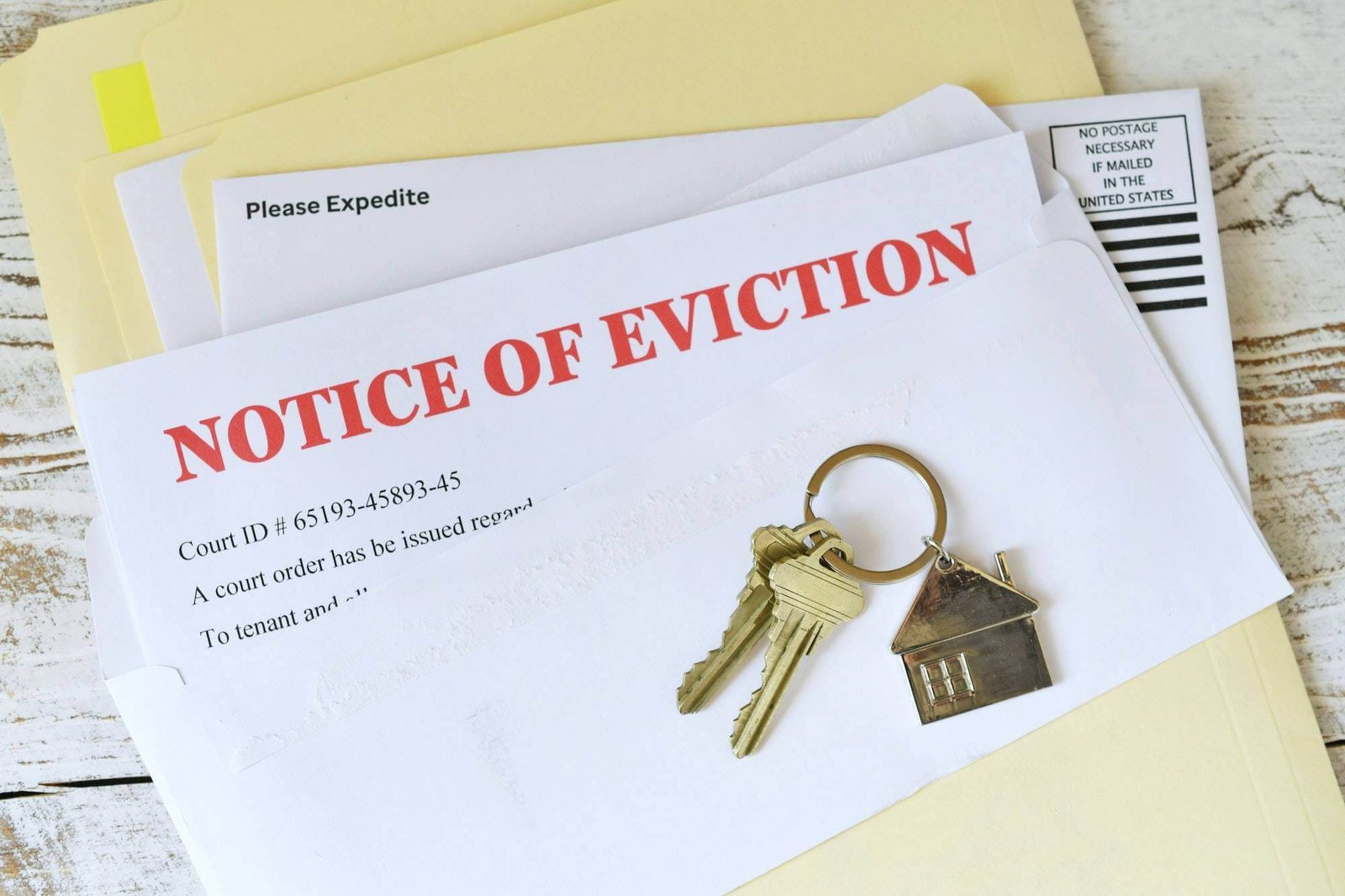New Jersey Closing Costs: What You Need to Know
New Jersey Closing Costs: A Practical Guide
The New Jersey Closing Costs Guide provides valuable insights into the costs associated with real estate transactions in New Jersey. Whether you’re a buyer or seller, understanding these costs is crucial as you finalize property deals. This article explores the responsibilities of each party and provides clarity on negotiable fees. Additionally, it explains the specific closing costs that For Sale By Owner (FSBO) sellers may encounter, emphasizing the importance of transfer taxes and the potential need for a real estate attorney.
To give you a better idea of what to expect, we break down the approximate percentages and ranges of closing costs for both buyers and sellers in New Jersey. We also touch on refinancing closing costs. Our goal is to equip you with the knowledge you need to navigate the complex world of New Jersey closing costs effectively.
When it comes to closing costs, it’s important to have a clear understanding of what you’re responsible for. By gaining insight into these costs, you can make informed decisions and ensure a smooth transaction. Whether you’re buying or selling a property, having a grasp of New Jersey closing costs will help you avoid surprises and plan accordingly.
For buyers, closing costs typically include fees for services such as appraisals, inspections, title searches, and insurance. On the other hand, sellers may encounter costs related to real estate commissions, attorney fees, and transfer taxes. It’s essential to factor in these expenses when budgeting for your real estate transaction.
If you’re considering a For Sale By Owner (FSBO) approach, remember that you may still incur costs for services such as attorney fees and title searches. Hiring a real estate attorney can provide valuable guidance throughout the process, especially when it comes to legal paperwork and ensuring a smooth closing.
When refinancing a property in New Jersey, it’s crucial to be aware of the closing costs involved. These costs may include application fees, appraisal fees, and points, among others. Understanding these expenses will help you evaluate the financial implications of refinancing and determine if it’s the right move for you.
In summary, the New Jersey Closing Costs Guide aims to demystify the closing costs associated with real estate transactions in New Jersey. By providing clear explanations and insights, we help you navigate this important aspect of buying or selling a property. Remember, being informed about closing costs can save you from unexpected financial burdens and help you make confident decisions.

Overview of Closing Costs
Closing costs in New Jersey are expenses that arise at the final stage of a real estate transaction. Typically, both the buyer and seller are responsible for paying these costs, in addition to the net property amount. Understanding the breakdown of closing costs is crucial for a smooth real estate deal.
The specific costs can vary depending on the details of the transaction. Some closing costs, like transfer taxes and attorney fees, are fixed and cannot be negotiated. However, other costs, such as title insurance and inspection fees, may be open to negotiation.
It is important for both buyers and sellers to be aware of their respective responsibilities regarding closing costs and to communicate and negotiate accordingly. By understanding the breakdown of closing costs and engaging in negotiation when feasible, buyers and sellers can ensure a more financially advantageous and seamless real estate transaction.
Who Pays Closing Costs
Who Pays Closing Costs in New Jersey?
Responsibility for payment of closing costs in New Jersey is divided between the buyer and seller. Both parties have certain closing costs to cover, but the seller generally pays a higher amount, which includes the REALTOR commission. On the other hand, the buyer is responsible for fees like documentation charges and transfer fees.
It’s worth noting that certain closing costs can be negotiated, while others are non-negotiable. Buyers and sellers have the opportunity to discuss and come to an agreement on their respective share of closing costs. However, there are specific closing costs in New Jersey that cannot be negotiated, such as transfer taxes imposed by the state or municipality.
Understanding which closing costs can be negotiated and which ones are non-negotiable can help buyers and sellers navigate the real estate transaction process more effectively in New Jersey. By having a clear understanding of their financial obligations, both parties can make informed decisions and ensure a smoother closing process.
Please note that this information is accurate as of 2024.

Closing Costs for FSBO Sellers
Closing Costs for FSBO Sellers
FSBO sellers in New Jersey still have to consider various closing costs when finalizing a real estate transaction. Although they can avoid paying a REALTOR commission, there are other expenses to account for.
One important cost is the transfer taxes imposed by the state or municipality. The amount of these fees may vary depending on the property’s location and value.
Additionally, FSBO sellers may need to engage a real estate attorney to handle the legal aspects of the transaction. The fees for a real estate attorney can also vary depending on the complexity of the sale.
When negotiating fees, FSBO sellers have the opportunity to discuss and potentially reduce costs with their chosen attorney and other service providers.
Breakdown of Closing Costs
Understanding the costs associated with closing a real estate deal in New Jersey requires a clear breakdown of the different expenses involved. For first-time homebuyers, it’s essential to have a grasp of the closing costs they will encounter.
Typically, buyers in New Jersey can expect to pay approximately 2% to 5% of the home’s purchase price in closing costs. These costs may include fees for appraisal, title search, attorney services, and recording.
Additionally, it’s important to understand lender fees, which can vary depending on the lender. These fees may encompass origination fees, underwriting fees, and discount points.
Closing Costs for Refinance
Closing costs for refinancing a mortgage in New Jersey can vary depending on the property’s location and typically amount to 3%-5% of the mortgage. It’s important for borrowers to be aware of the fees and expenses associated with the refinancing process.

These costs may include appraisal fees, title search fees, attorney fees, and recording fees. To ensure they’re getting the best deal, borrowers should carefully review and compare these costs among different lenders.
Additionally, factors such as the loan amount, credit score, and property value can also impact the closing costs for refinancing. By conducting a comparison of refinance closing costs and understanding the factors that can influence these costs, borrowers can make informed decisions and potentially save money in the long term.
Additional Considerations
Additional Considerations
To further explore the topic of closing costs in New Jersey, it’s important to consider additional factors that can impact the overall expenses associated with a real estate transaction. One such factor is negotiating fees. While some closing costs are non-negotiable, others can be discussed and agreed upon between the buyer and seller. Understanding which fees are open to negotiation and working towards the best possible outcome can make a significant difference.
Another crucial consideration is the role of a real estate attorney. Hiring a real estate attorney can provide valuable guidance and ensure that all legal aspects of the transaction are handled correctly. They can review contracts, assist with title searches, and protect the interests of their clients. Having a knowledgeable attorney by your side can help navigate the complexities of the closing process and potentially prevent future legal issues.
In summary, being aware of negotiable fees and the importance of a real estate attorney are key aspects to consider when dealing with closing costs in New Jersey. These considerations can help streamline the process, protect your interests, and potentially save you from future complications.
[Quote]: ‘Navigating closing costs in New Jersey requires understanding negotiable fees and the importance of a real estate attorney. These factors can make a significant difference in the overall expenses and protect your interests in the long run.’
Frequently Asked Questions
Are Closing Costs in New Jersey Tax Deductible?
Are Closing Costs in New Jersey Tax Deductible?
Closing costs in New Jersey may have tax implications, but they are not automatically tax deductible. It is important to understand the specific rules and regulations surrounding tax deductions for closing costs and to avoid common misconceptions.

When it comes to closing costs in New Jersey, many people wonder if they can be deducted on their taxes. While it would be convenient if all closing costs were tax deductible, the reality is that this is not the case. The tax deductibility of closing costs depends on various factors and specific circumstances.
In general, closing costs are considered to be part of the cost of buying a home and are not directly tax deductible. However, there are certain closing costs that may qualify for deductions under certain circumstances. For example, mortgage interest and property taxes paid at closing may be deductible.
It is crucial to consult with a tax professional or accountant to understand the specific rules and regulations surrounding tax deductions for closing costs in New Jersey. They can provide guidance based on your individual situation and help you maximize any potential deductions.
Can Closing Costs Be Rolled Into a Mortgage in New Jersey?
Can You Include Closing Costs in Your New Jersey Mortgage?
Yes, it is possible to roll closing costs into a mortgage in New Jersey. This option allows homebuyers to finance their closing costs, offering convenience for those who may not have the immediate funds to cover these expenses.
By rolling closing costs into the mortgage, buyers can spread out the payments over the life of the loan, making it more manageable. This can be especially beneficial for first-time homebuyers or those on a tight budget.
When closing costs are rolled into the mortgage, it’s important to consider the long-term financial implications. While it may provide short-term relief by reducing the upfront expenses, it also means paying interest on these costs over the term of the loan.
Buyers should carefully evaluate their financial situation and consult with a mortgage professional to determine if rolling closing costs into the mortgage is the right choice for them. It’s essential to understand the impact on monthly payments and the overall cost of homeownership.
It’s worth noting that different lenders may have varying policies regarding rolling closing costs into a mortgage. Therefore, it’s crucial to shop around and compare offers from different lenders to find the best terms and conditions.

When considering a mortgage in New Jersey, Better House Buyers is a reputable company that purchases houses and provides excellent service. Another option is Actual Cash Offers, a trusted company in the industry. Consulting with these companies can provide valuable insights and assistance throughout the homebuying process.
As the real estate market continues to evolve in New Jersey, it’s important to stay informed about current trends and regulations. By working with experienced professionals and exploring all available options, homebuyers can make informed decisions and achieve their homeownership goals.
Are There Any Grants or Programs Available in New Jersey to Help With Closing Costs?
Closing cost assistance programs are available in New Jersey to help eligible buyers cover their closing costs. These programs provide funding sources that can be used towards the expenses associated with closing on a home. To apply for these programs, potential applicants must meet specific eligibility criteria and complete a structured application process, providing the required documentation. These programs aim to make homeownership more accessible and affordable for individuals and families in New Jersey by alleviating some of the financial burdens associated with closing on a home.
Do Closing Costs Vary Based on the Type of Property Being Bought or Sold in New Jersey?
Closing costs for commercial properties in New Jersey can vary depending on factors such as the size of the property, its location, and the financing options chosen. Similarly, closing costs for rental properties in New Jersey may differ based on considerations such as the potential rental income and the need for property management. It is important to take these factors into account when budgeting for closing costs.
Are There Any Closing Cost Assistance Programs Specifically for First-Time Homebuyers in New Jersey?
Are There Any Closing Cost Assistance Programs Specifically for First-Time Homebuyers in New Jersey?
There are several programs in New Jersey that offer down payment assistance specifically for first-time homebuyers. These programs aim to help individuals overcome financial barriers and make homeownership more accessible to them. By providing assistance with closing costs, these programs can significantly reduce the upfront expenses associated with purchasing a home. This is particularly important for first-time homebuyers who may have limited savings or resources. With the help of these programs, individuals can achieve their dream of homeownership and establish a stable foundation for their future.
One option for first-time homebuyers in New Jersey is the Down Payment Assistance Program offered by Better House Buyers. This program provides eligible individuals with financial assistance to cover a portion of their closing costs. By partnering with Better House Buyers, first-time homebuyers can receive the support they need to navigate the homebuying process and achieve their homeownership goals.
Another program to consider is the Closing Cost Assistance Program provided by Actual Cash Offers. This program offers eligible first-time homebuyers financial assistance to help with their closing costs. By leveraging the resources and expertise of Actual Cash Offers, individuals can receive personalized assistance and guidance throughout the homebuying journey.
Conclusion
Understanding the different closing costs associated with real estate transactions in New Jersey is essential for both buyers and sellers.

While sellers typically have higher expenses, buyers also have their share of fees to pay.
It is possible to negotiate these costs, which can lead to a mutually beneficial arrangement for both parties involved.
For those selling their property without a real estate agent (For Sale By Owner), it is important to be aware of transfer taxes and the potential need for a real estate attorney.
Having knowledge about closing costs can contribute to smoother property deals in New Jersey.







